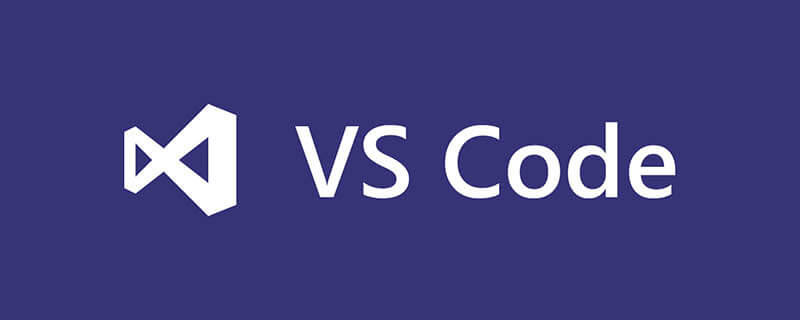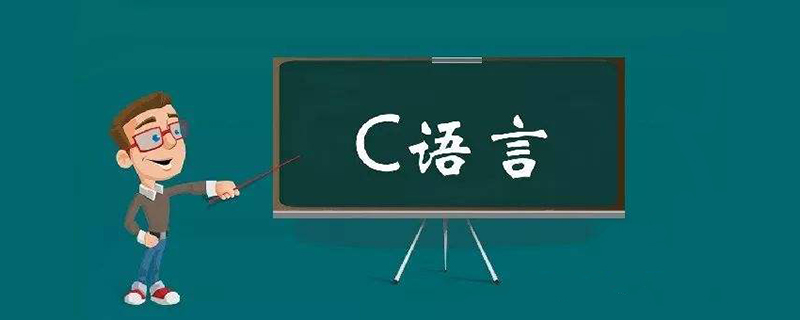
Three forms of assignment to arrays in C language
In C language, three forms of assignment to arrays
Recommended learning: C language video tutorial
1. Through the form of loop, that is: array name [subscript], assign values to the elements of the array in sequence
#include <stdio.h>
int main()
{
int i;
int a[10] = {0};
for(i=0;i<10;i++)
{
scanf("%d",&a[i]);
}
for(i=0;i<10;i++)
{
printf("%d ",a[i]);
}
return 0;
}2. Assign values to the elements of the array in sequence through the form of a loop Array name subscript
#include <stdio.h>
int main()
{
int i;
int a[5]; // 数组名:a 是数组首元素的地址 -----相当于一个指针 是一个常量
//指针+整型值,表示地址的前移,前移的字节由指针指向的对象的类型决定
//b+1; 前移4个字节(int型)
printf("%#p\n",a); //打印输出数组a的地址 相当于a[0]的地址
printf("%#p\n",&a[0]);
printf("%#p\n",a+1);
printf("%#p\n",&a[1]);
printf("%#p\n",a+2);
printf("%#p\n",&a[2]);
printf("请输入数组a元素的值:");
for(i=0;i<5;i++)
{
scanf("%d",a+i); //赋值给数组a
}
printf("a数组元素的值为:");
for(i=0;i<5;i++)
{
printf("%d ",*(a+i));
}
return 0;
}The printed result:

3. Use pointers to assign values to the elements of the array in sequence through loops
#include <stdio.h>
int main()
{
int i;
int d[5] = {10,20,34,89,90};
//指针指向一维数组,指针指向数组首元素
//数据类型 *指针名;
int *p = d;
//int *p = &d[0];
//指针指向数组首元素。指针名可以当数组名使用
printf("%#p\n",p);
printf("%d\n",d[0]);
printf("%d\n",*++p); //++p p的地址先偏移, *p
printf("%d\n",d[1]);
printf("%#p\n",p);
printf("%#p\n",&d[1]);
printf("请输入数组d元素的值:");
p = d;
for(i = 0; i < 5; i++)
{
//scanf("%d",p+i); //p+0 p+1 p+2 p+3
scanf("%d",p++); //p = p+1
}
//for循环结束,p偏移到元素d[4]的下一个元素
p = &d[0];
for(i = 0; i < 5; i++)
{
//printf("%d ",*(p+i));
//printf("%d ",*p++); //p++,后置 *p取p变化之前的内容
printf("%d ",p[i]); //指针指向数组首元素。指针名可以当数组名使用
}
printf("\n-----------------\n");
return 0;
}For more C language related Programming introductory tutorials, please pay attention PHP Chinese website!
The above is the detailed content of Three forms of assigning values to arrays in C language. For more information, please follow other related articles on the PHP Chinese website!
 (超详细)VScode中配置C语言环境的方法Dec 05, 2022 pm 07:05 PM
(超详细)VScode中配置C语言环境的方法Dec 05, 2022 pm 07:05 PMVScode中怎么配置C语言环境?下面本篇文章给大家介绍一下VScode配置C语言环境的方法(超详细),希望对大家有所帮助!
 c语言中node是什么意思Jul 06, 2022 pm 03:51 PM
c语言中node是什么意思Jul 06, 2022 pm 03:51 PM在C语言中,node是用于定义链表结点的名称,通常在数据结构中用作结点的类型名,语法为“struct Node{...};”;结构和类在定义出名称以后,直接用该名称就可以定义对象,C语言中还存在“Node * a”和“Node* &a”。
 c语言怎么将数字转换成字符串Jan 04, 2023 pm 03:20 PM
c语言怎么将数字转换成字符串Jan 04, 2023 pm 03:20 PMc语言将数字转换成字符串的方法:1、ascii码操作,在原数字的基础上加“0x30”,语法“数字+0x30”,会存储数字对应的字符ascii码;2、使用itoa(),可以把整型数转换成字符串,语法“itoa(number1,string,数字);”;3、使用sprintf(),可以能够根据指定的需求,格式化内容,存储至指针指向的字符串。
 c语言开根号运算符是什么Mar 06, 2023 pm 02:39 PM
c语言开根号运算符是什么Mar 06, 2023 pm 02:39 PM在c语言中,没有开根号运算符,开根号使用的是内置函数“sqrt()”,使用语法“sqrt(数值x)”;例如“sqrt(4)”,就是对4进行平方根运算,结果为2。sqrt()是c语言内置的开根号运算函数,其运算结果是函数变量的算术平方根;该函数既不能运算负数值,也不能输出虚数结果。
 c语言数组如何初始化Jan 04, 2023 pm 03:36 PM
c语言数组如何初始化Jan 04, 2023 pm 03:36 PMC语言数组初始化的三种方式:1、在定义时直接赋值,语法“数据类型 arrayName[index] = {值};”;2、利用for循环初始化,语法“for (int i=0;i<3;i++) {arr[i] = i;}”;3、使用memset()函数初始化,语法“memset(arr, 0, sizeof(int) * 3)”。
 c语言合法标识符的要求是什么Aug 27, 2020 pm 01:47 PM
c语言合法标识符的要求是什么Aug 27, 2020 pm 01:47 PMc语言合法标识符的要求是:1、标识符只能由字母(A~Z, a~z)、数字(0~9)和下划线(_)组成;2、第一个字符必须是字母或下划线,不能是数字;3、标识符中的大小写字母是有区别的,代表不同含义;4、标识符不能是关键字。
 c语言中源文件编译后生成什么文件Nov 23, 2022 pm 07:44 PM
c语言中源文件编译后生成什么文件Nov 23, 2022 pm 07:44 PMc语言编译后生成“.OBJ”的二进制文件(目标文件)。在C语言中,源程序(.c文件)经过编译程序编译之后,会生成一个后缀为“.OBJ”的二进制文件(称为目标文件);最后还要由称为“连接程序”(Link)的软件,把此“.OBJ”文件与c语言提供的各种库函数连接在一起,生成一个后缀“.EXE”的可执行文件。
 c语言怎么计算n的阶乘Jan 04, 2023 pm 03:18 PM
c语言怎么计算n的阶乘Jan 04, 2023 pm 03:18 PMc语言计算n的阶乘的方法:1、通过for循环计算阶乘,代码如“for (i = 1; i <= n; i++){fact *= i;}”;2、通过while循环计算阶乘,代码如“while (i <= n){fact *= i;i++;}”;3、通过递归方式计算阶乘,代码如“ int Fact(int n){int res = n;if (n > 1)res...”。


Hot AI Tools

Undresser.AI Undress
AI-powered app for creating realistic nude photos

AI Clothes Remover
Online AI tool for removing clothes from photos.

Undress AI Tool
Undress images for free

Clothoff.io
AI clothes remover

AI Hentai Generator
Generate AI Hentai for free.

Hot Article

Hot Tools

Safe Exam Browser
Safe Exam Browser is a secure browser environment for taking online exams securely. This software turns any computer into a secure workstation. It controls access to any utility and prevents students from using unauthorized resources.

SublimeText3 Linux new version
SublimeText3 Linux latest version

SublimeText3 Chinese version
Chinese version, very easy to use

Notepad++7.3.1
Easy-to-use and free code editor

SublimeText3 Mac version
God-level code editing software (SublimeText3)






